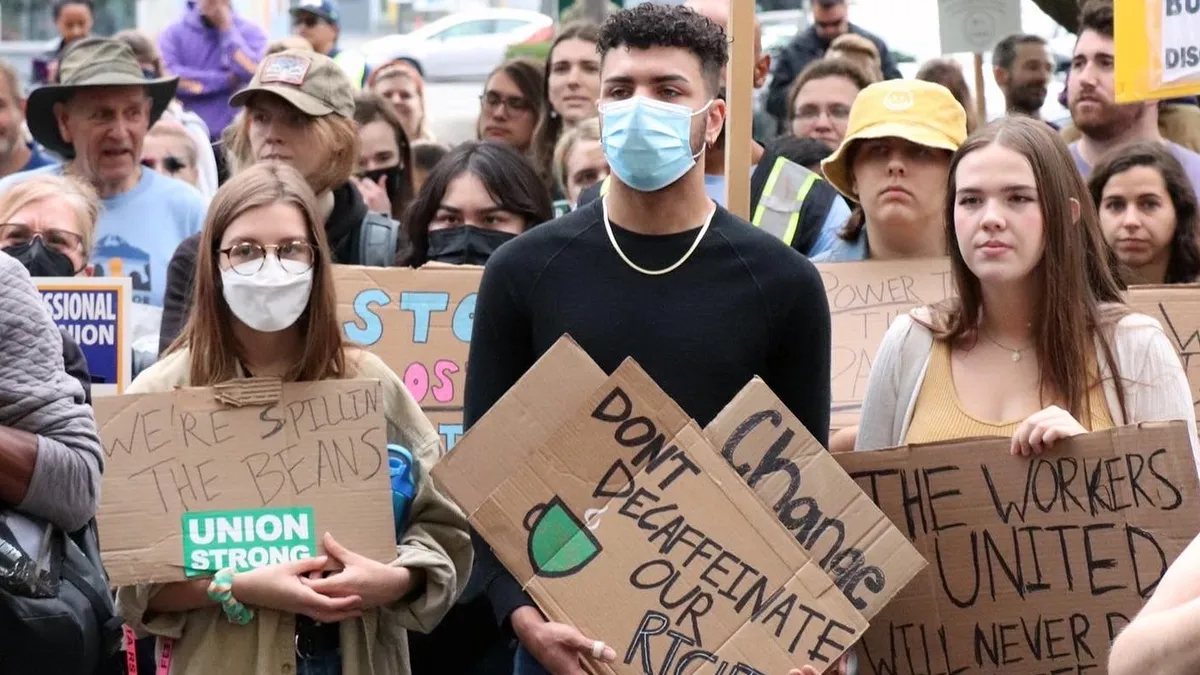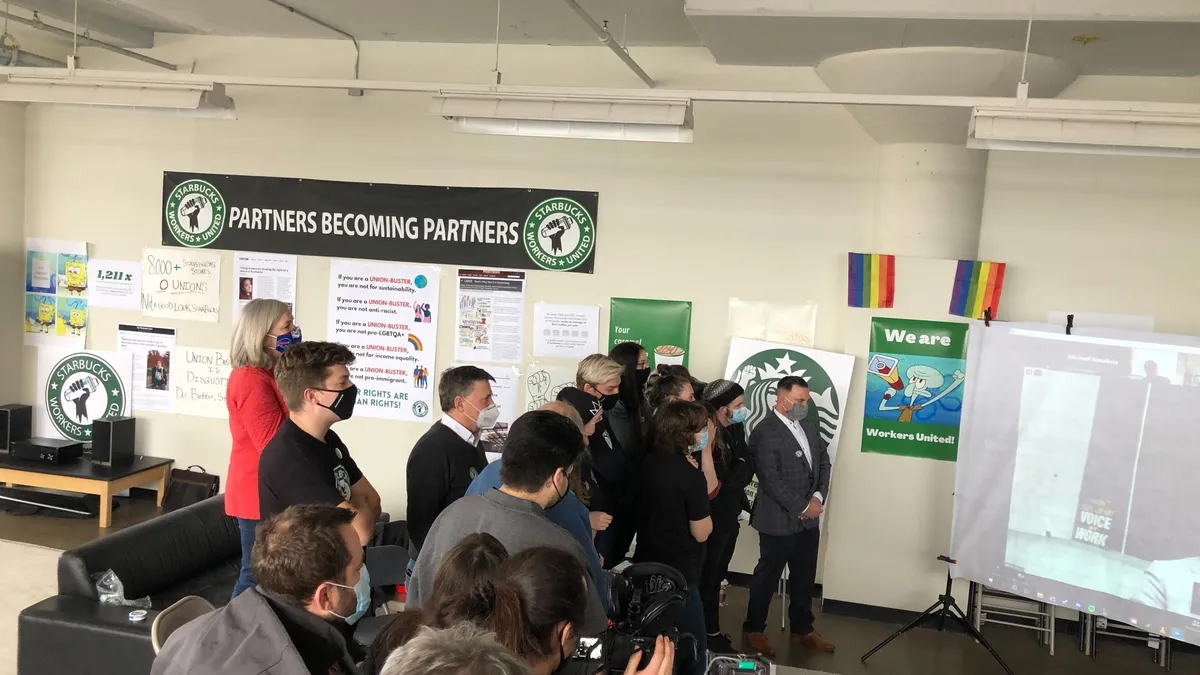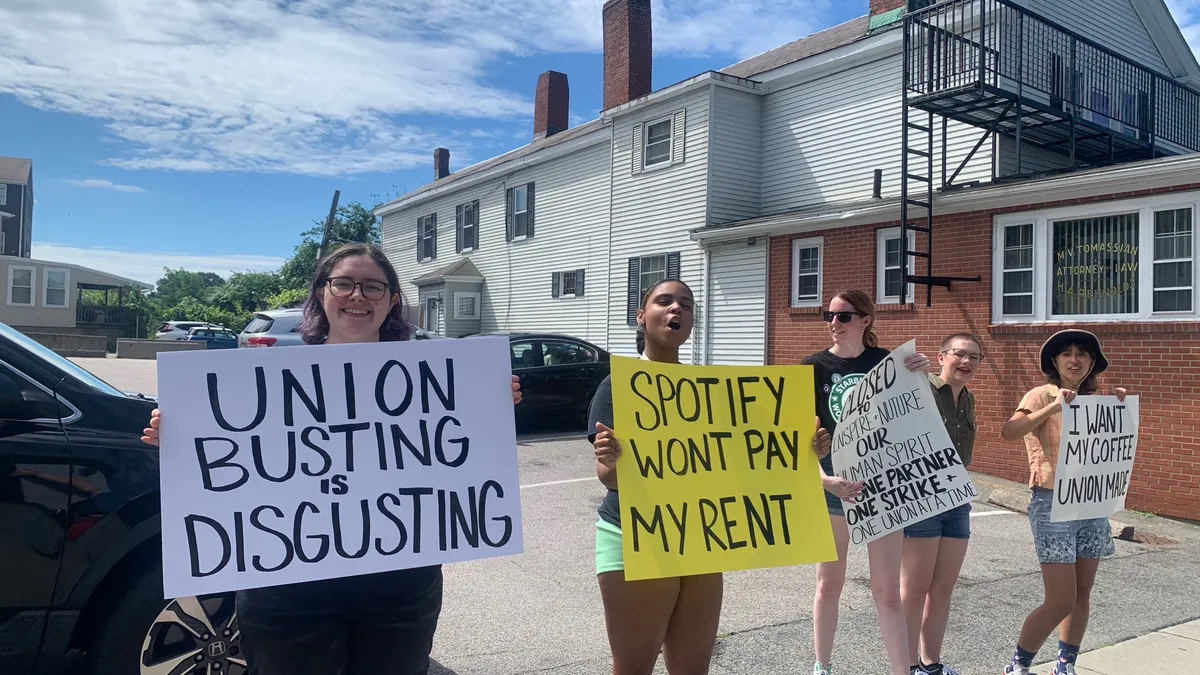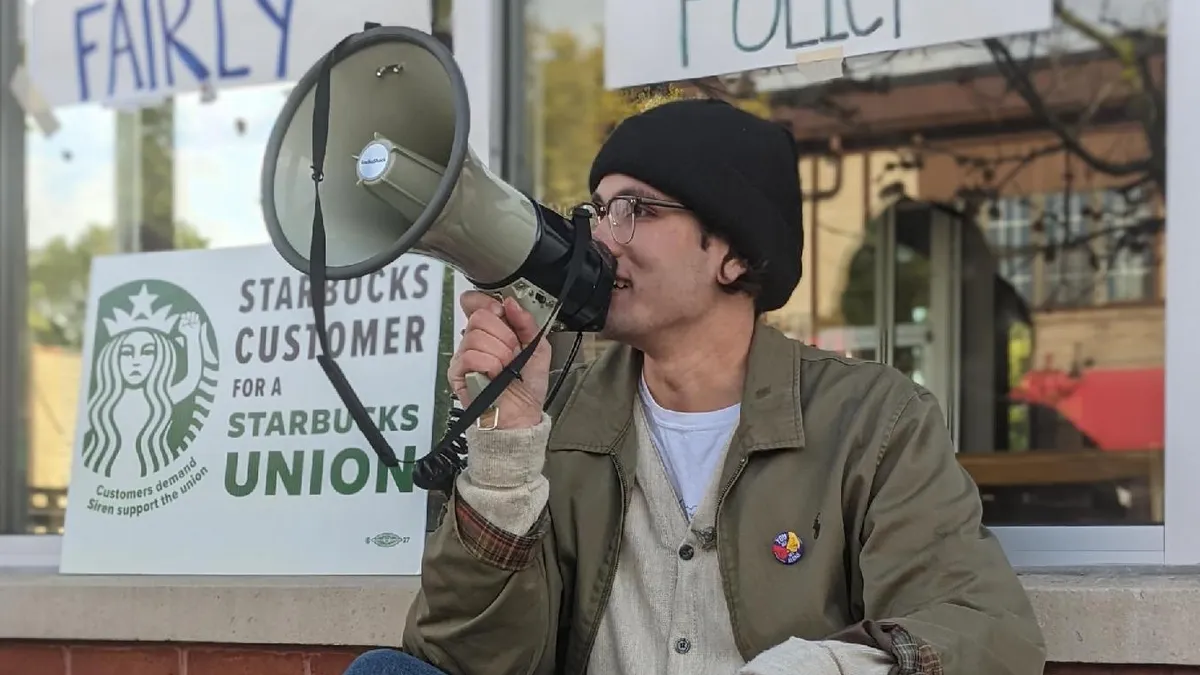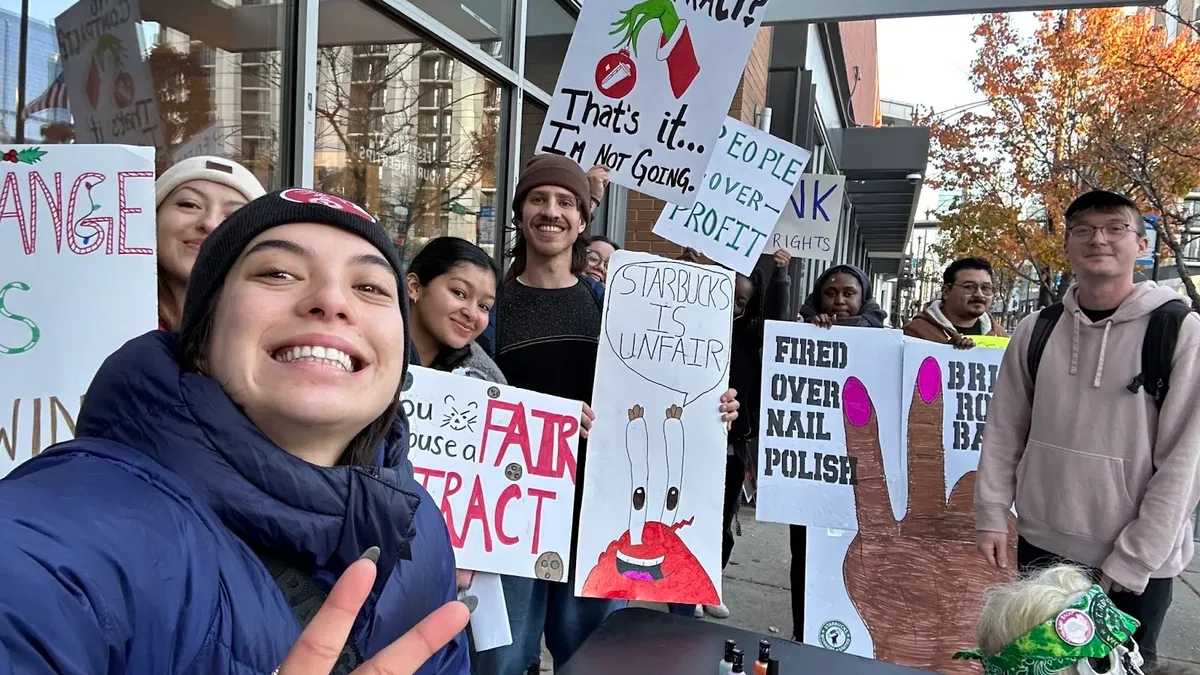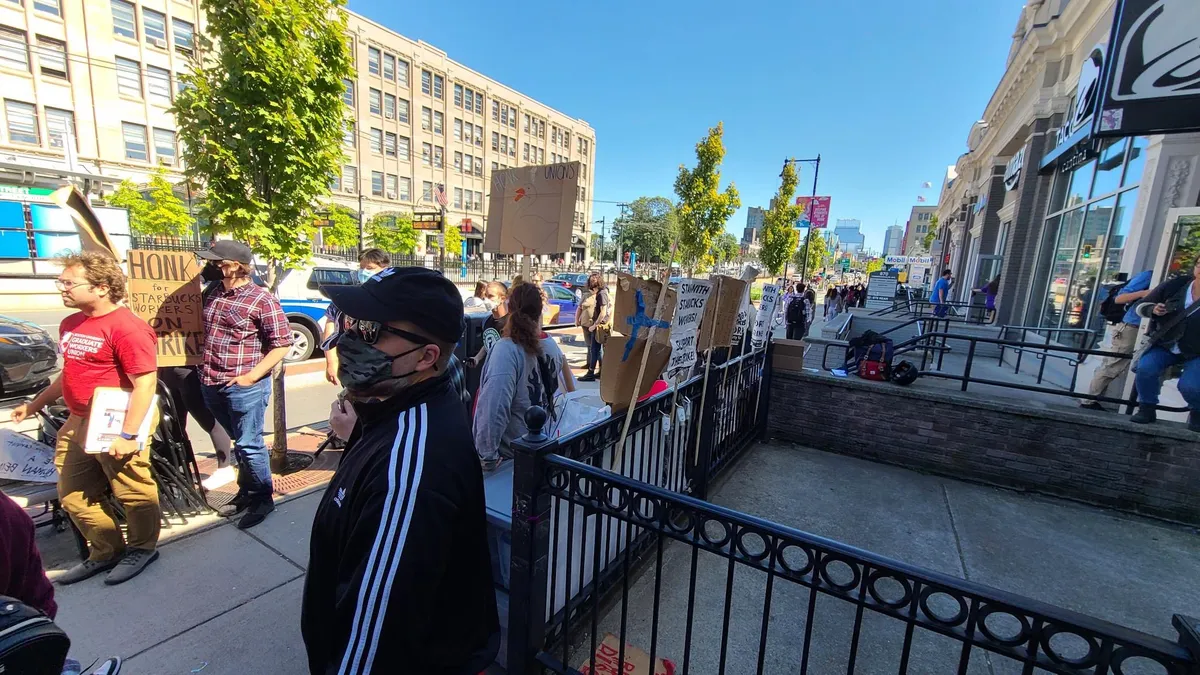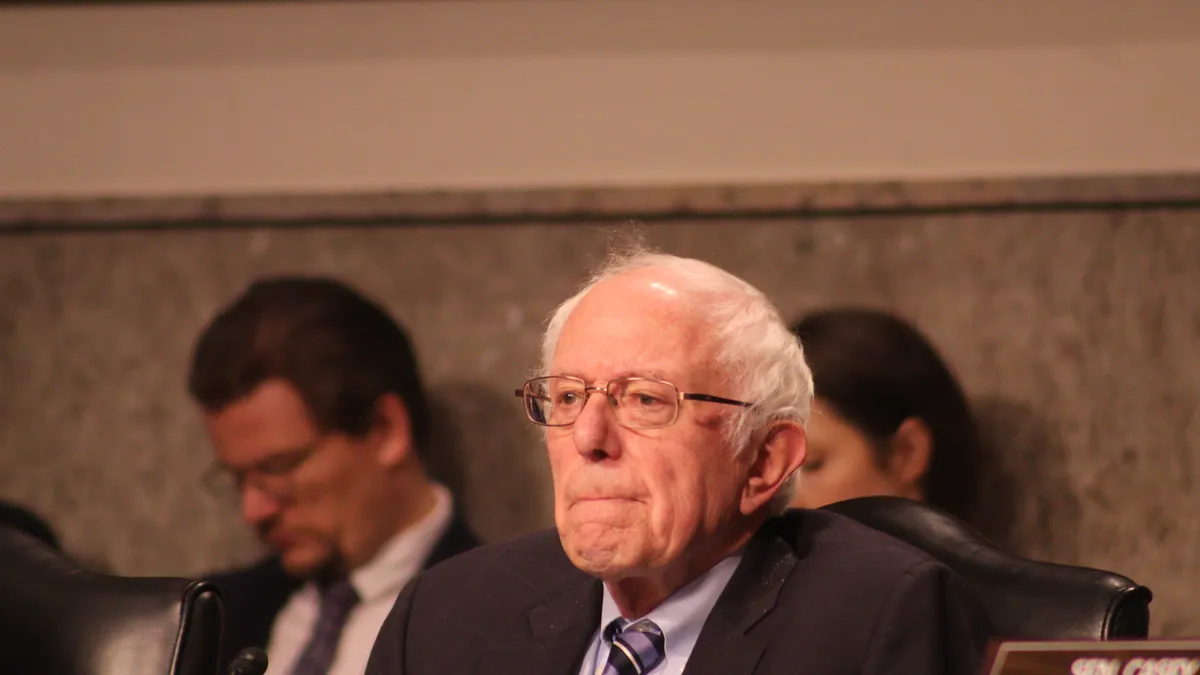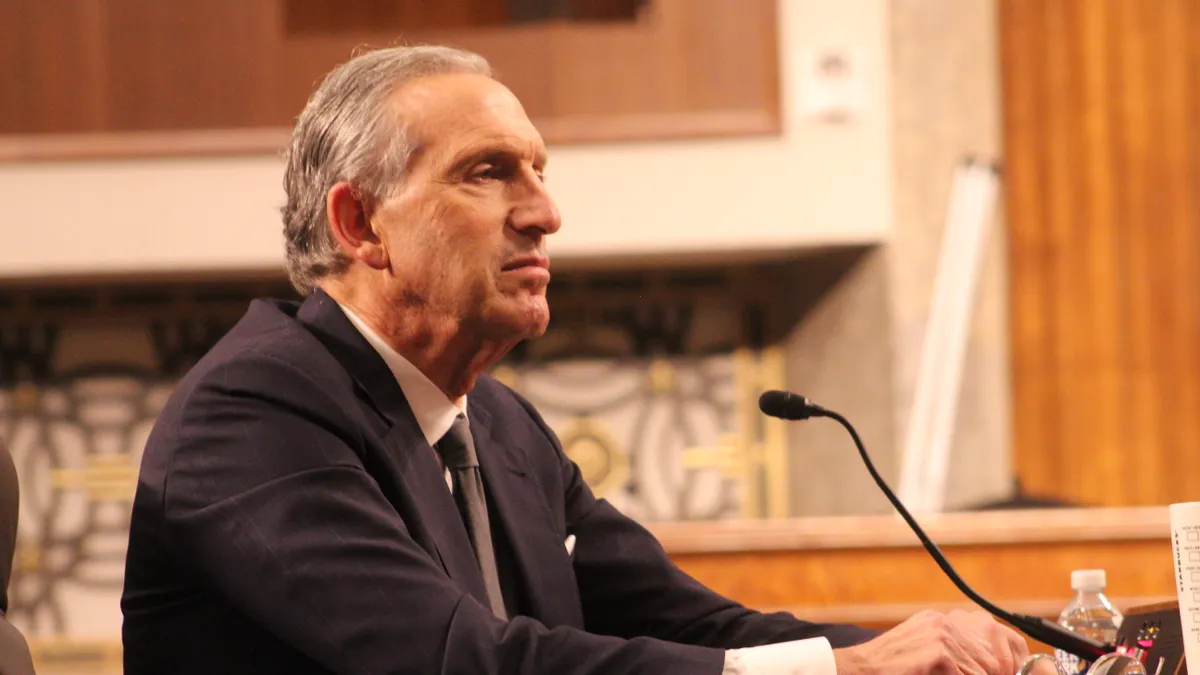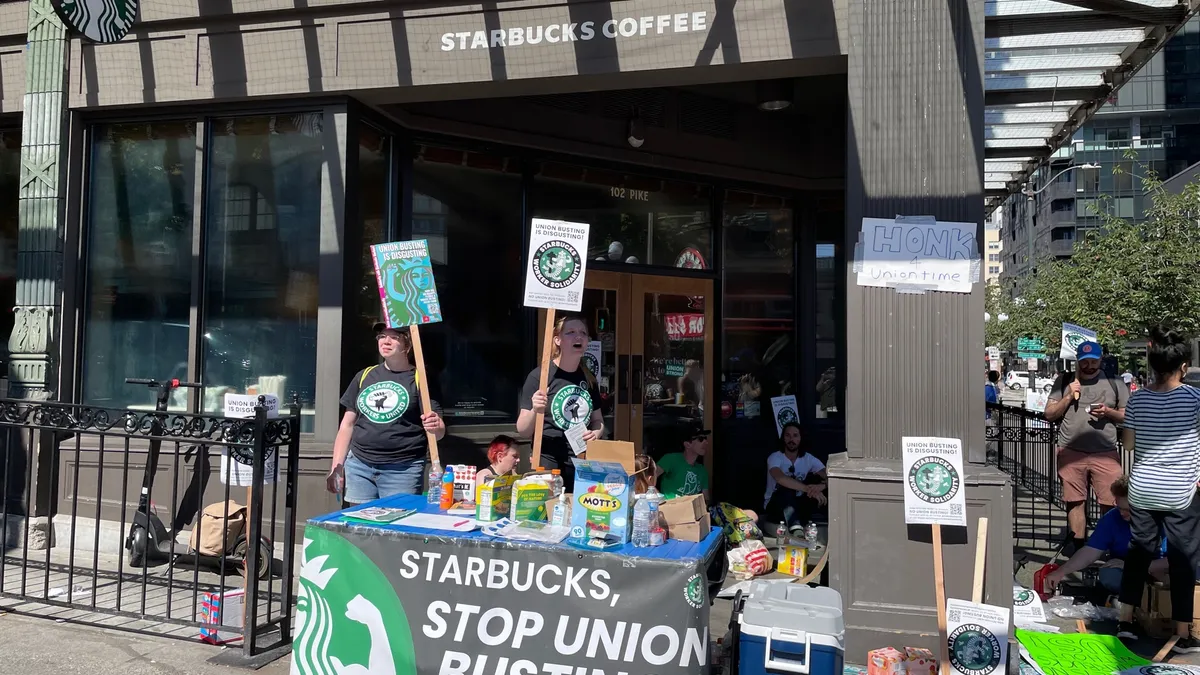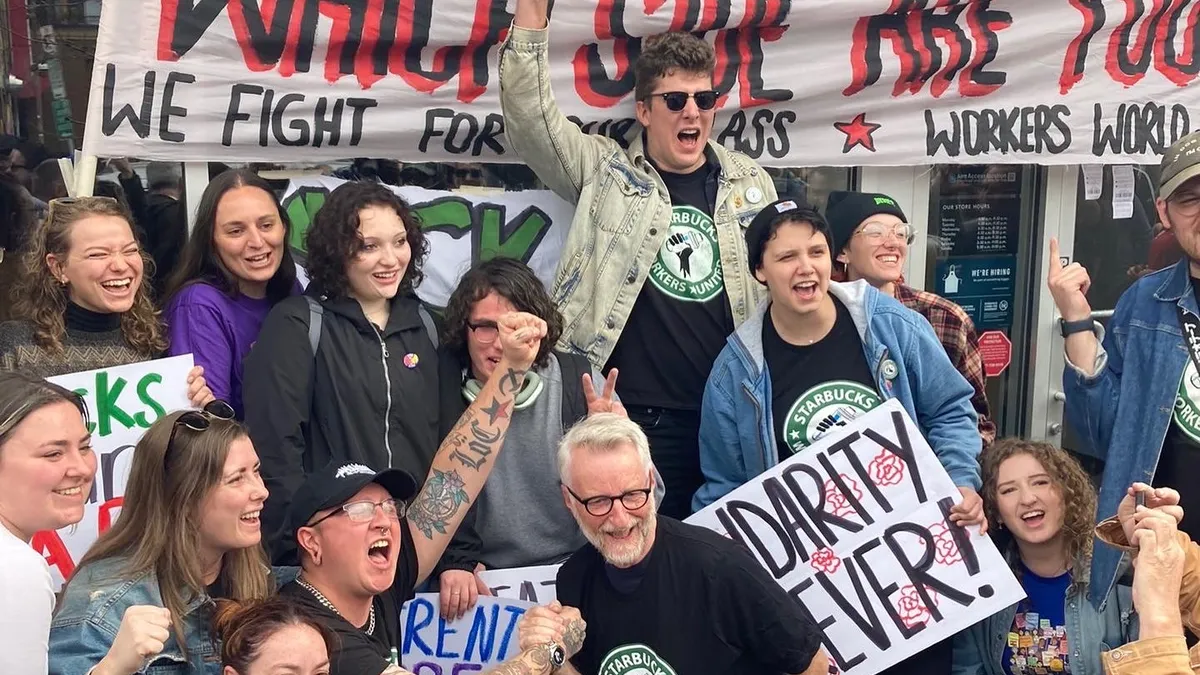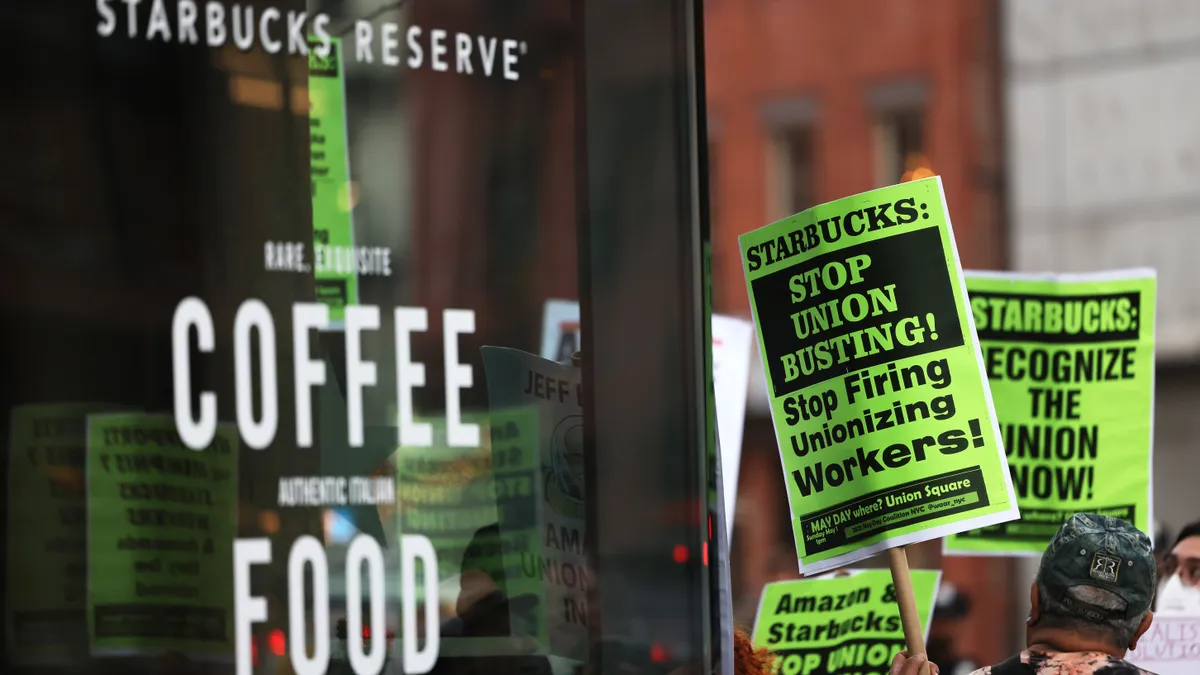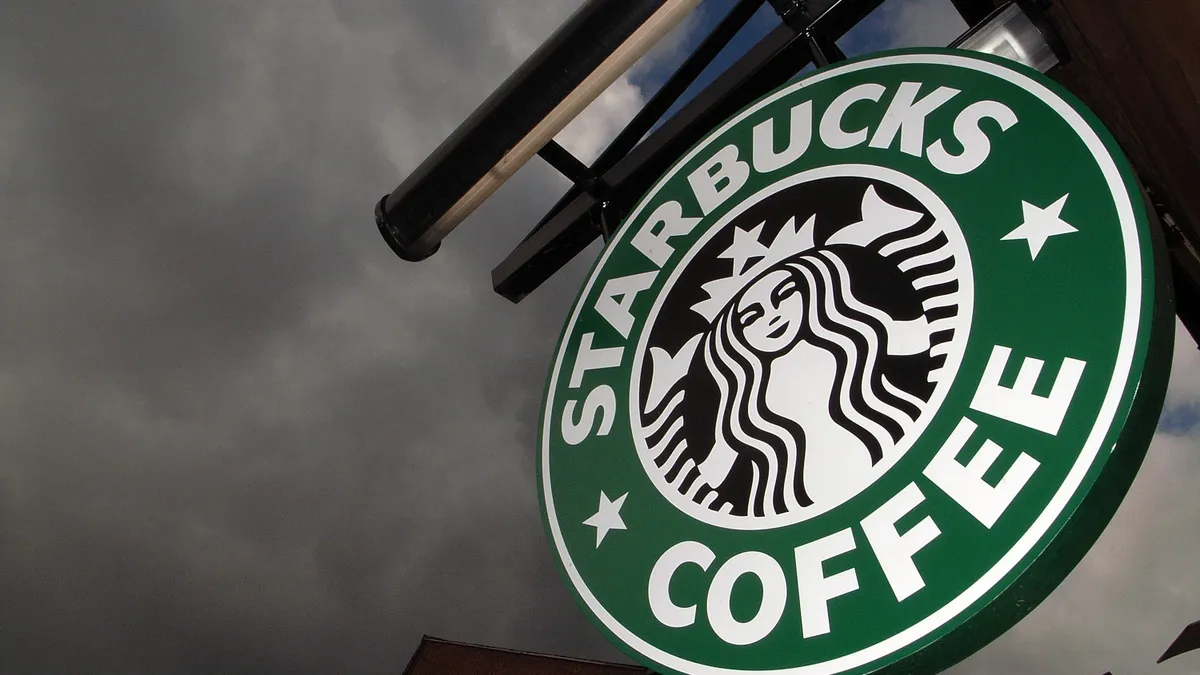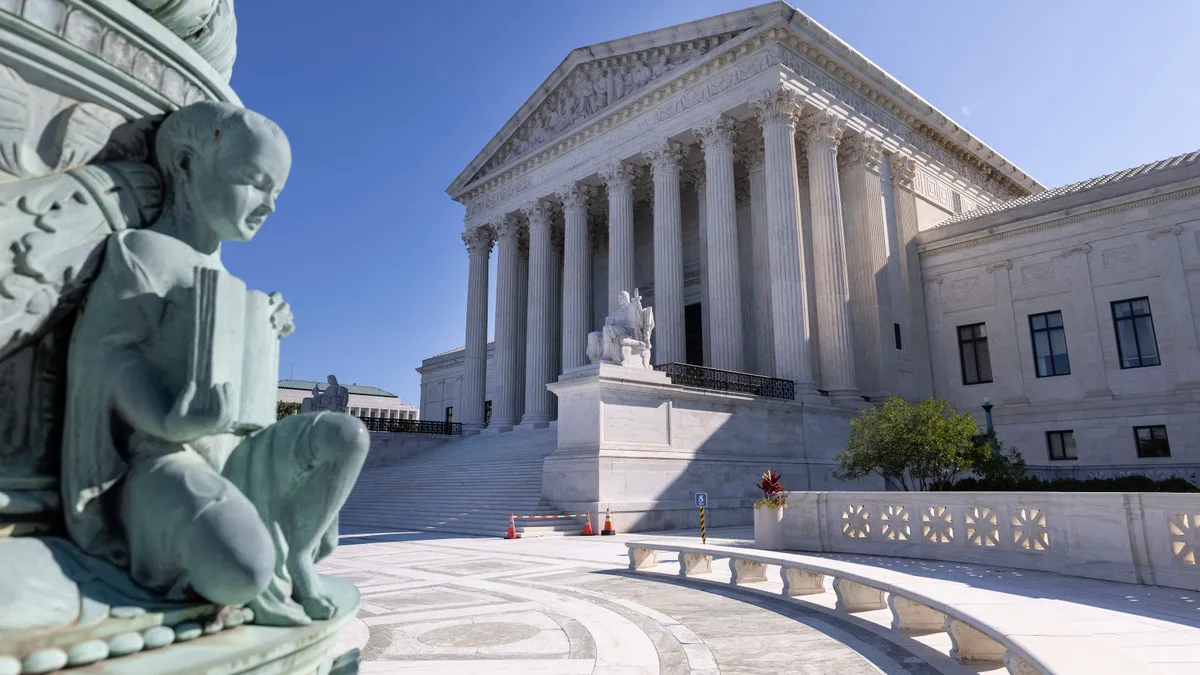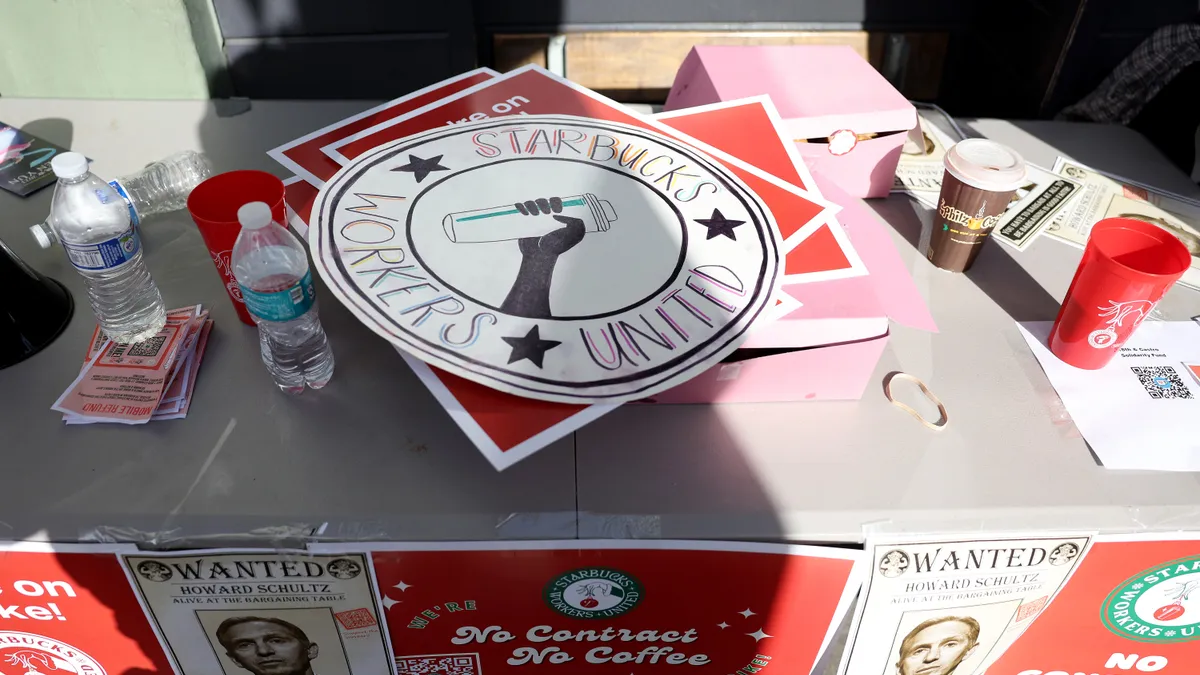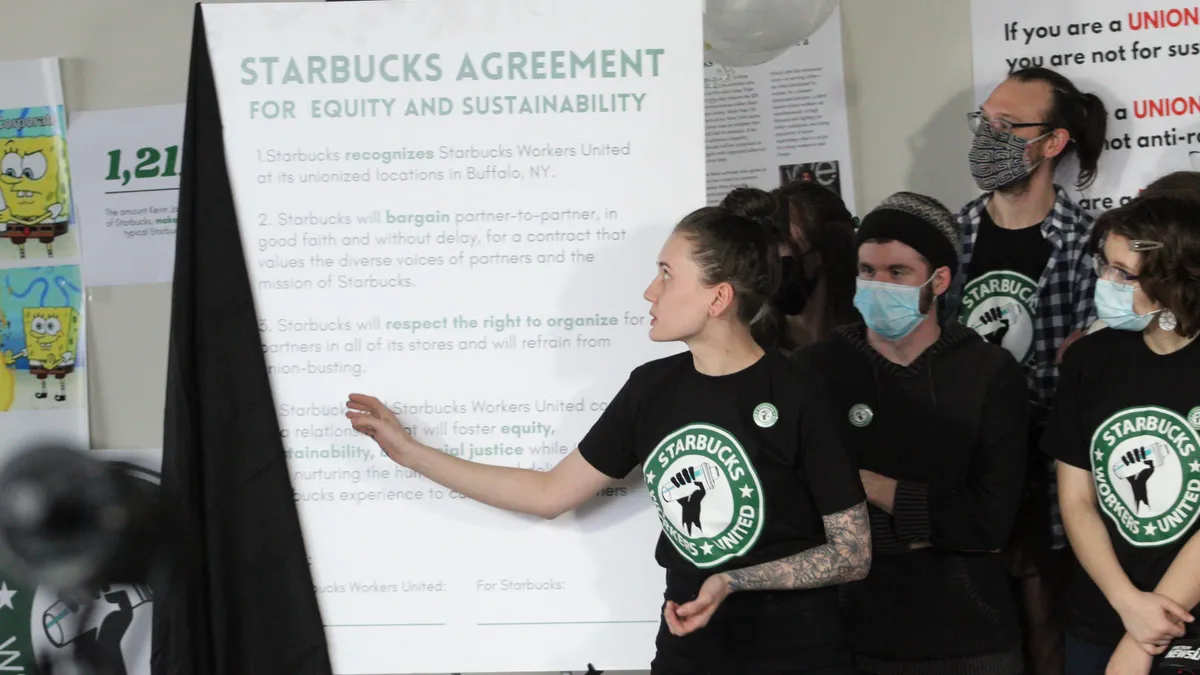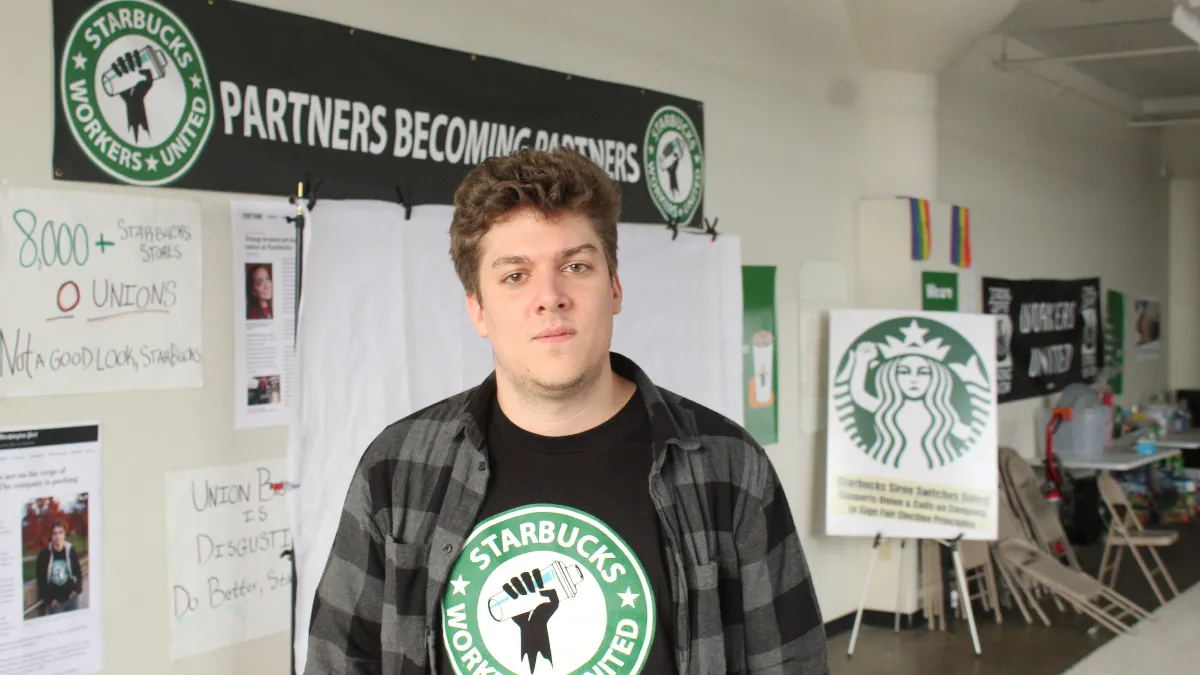Dive Brief:
- Starbucks shareholders approved a proposal calling on the company to undergo an independent workers’ rights review assessing its adherence to the International Labour Organization’s Core Labor Standards. The company’s board recommended voting against the proposal, and said Starbucks complies with those standards.
- A majority of voters approved the measure at the company’s March 23 shareholder meeting, by a vote of 418,792,991 shares for and 386,056,422 against, according to a form 8-K filed with the U.S. Securities and Exchange Commission.
- The news followed close on the heels of appearances by former CEO Howard Schultz, several labor experts and two Starbucks Workers United members before the Senate Committee on Health, Education, Labor and Pensions on Wednesday.
Dive Insight:
In a press release issued Wednesday, New York City Comptroller Brad Lander, who helped organize a coalition in support of the measure, said the vote “reflects a growing demand for an honest accounting of the discrepancy between Starbucks’ purported values and management’s anti-union behavior.”
A Starbucks spokesperson said the company was already undertaking a human rights review that would include labor rights in a text message to Restaurant Dive. The company did not immediately clarify if it would follow the shareholder vote by initiating a separate, independent review specifically of its labor rights commitments. Starbucks, at its shareholder meeting, told voters not to support the proposal because the company was undertaking that broader review.
Starbucks Workers United said in a tweet that the vote reflected growing public concern with the company’s alleged union busting.
“Starbucks is facing the consequences of their actions. Between workers, customers, US Senators, federal judges and now shareholders, Starbucks is beginning to be held accountable,” the union said on Twitter.
The shareholder measure was publicly backed by a coalition of investors including major pension funds from union dense cities in the United States and United Kingdom.
Jonas Kron, chief advocacy officer at Trillium Asset Management, which backed the proposal, said the vote could prove a turning point.
“Recently approximately 160 Starbucks corporate employees signed a public letter asking management to commit to a policy of neutrality when it comes to union organizing, it is evident that the tide is shifting and that Mr. [Laxman] Narasimhan has the chance to set a new course when it comes to worker rights,” Kron said in a press release.
Other measures intended to force Starbucks to disclose more about its operations in China and to rollback “woke business practices,” like diversity and inclusion efforts and allowing non-customers to use store bathrooms, failed by wide margins.
The motion on China failed, with shareholders controlling 765,333,046 shares opposing it and 36,072,616 supporting. The proposal regarding diversity and inclusion, framed as a corporate sustainability push, failed 782,582,216 to 21,649,542.



